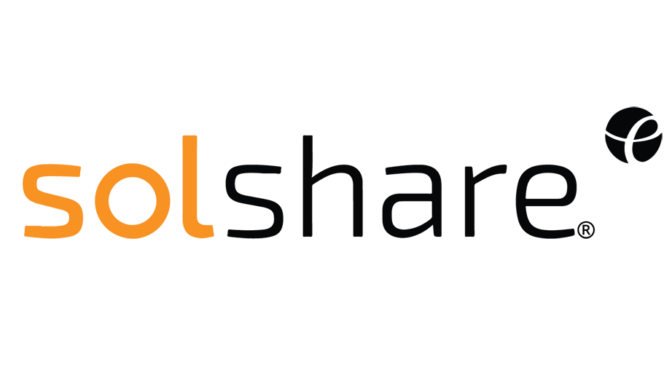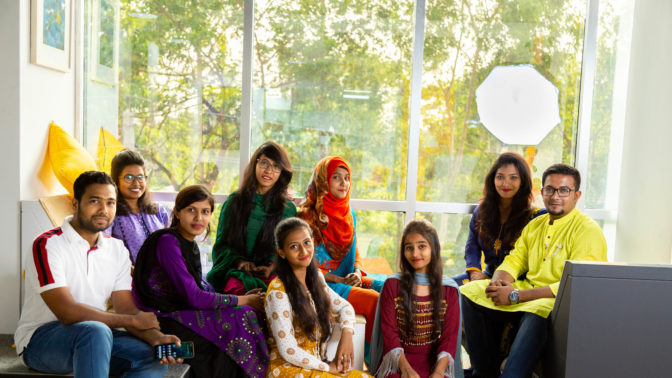ME SOLshare Ltd. (SOLshare)
SOLshare has created a revolutionary new approach to bring affordable solar electricity to everyone in Bangladesh and beyond.


What we should know about you
Questions answered by Dr. Sebastian Groh, CEO
1. What is your biggest success as an entrepreneur?
At the heart of SOLshare, and in everything we do, is the passion/drive to make use of existing resources, and focus on our comparative advantage. This is a lesson I learnt early on during my time at Stanford. Focus on your comparative advantage and leave out all the other distractions. So this is what we are doing. The core problem we are tackling is that of energy poverty. Around the globe, there are around 2.3 billion people that have either poor or no access to electricity. This concerns every 3rd person on our planet. Bangladesh achieved something truly amazing – they provided a lot of those people with what is called a solar home system. A country which is most vulnerable to climate change, has over 25 million people who have solar as their primary energy source. They have been showing us the way all along. This is what brought me to Bangladesh in the first place, first as a researcher and then as a social entrepreneur.
2. What was a turning point in your career as an entrepreneur / for your organization?
Our biggest challenge is expansion of the national grid. As much we understand that the national goal is to become 100% electrified, we had to take a long hard look at our work and understand what would happen if we could not continue. Even though the Sustainable and Renewable Energy Development Authority (SREDA) identified over a 1,000 villages that the grid would not be able to reach to be electrified through renewable solutions. This was not sufficient. This is where the idea for a point of common coupling (PCC) came about. Instead of removing over 5 million solar panels and batteries (storage) that could be an invaluable resource we could put it all to use. If we bundled our interconnected, peer-to-peer microgrids and connected them to the national grid through a PCC it could pave the way for a new global standard for electricity distribution. We decided to start talking to all the government energy stakeholders to pursue Community Power Purchase Agreements as a viable option towards a resilient and sustainable recovery of COVID-19, the development of national utilities whilst providing decentralized renewable energy prosumers with a financial incentive for electricity usage and sharing at the BoP.
3. What was a troubling time that you managed to overcome?
In early 2017, SOLshare came up with a new product addressing a dire need in the market. Millions of credit-financed SHSs were in the market, but repayment rates started to plummet and the threat of taking away the asset in case of default, lost its credibility. SOLshare came up with a low-cost device (USD $10) that could be installed in the field on existing SHS to turn them from postpaid into prepaid. In the first month alone we sold 2,500 SOLcontrols. We were the only company in the country with such a device. While installation numbers were around 40,000 SHS per month, a new social security program was launched which made SHSs free of cost. A smart payment solution isn’t needed for a free product. This was devastating as we had 1.5 years of R&D behind us before launching the product and another USD $100,000 worth of stock at hand. A daunting task to maneuver for a young start-up and a potential breaking point. After a month of sulking and complaining, we decided to pivot, and took the device that was used to turn SHS into prepaid and re-designed it to turn appliances into PAYG devices, an even bigger market we serve today.
4. Did you always want to become a social entrepreneur?
I was on track to become an investment banker. I was majoring in Economics and worked semester breaks on the trading floor in Frankfurt. One day there was an event at my university labeled Doing Business with the Poor. The notion of doing business with the poor was extremely provocative back then. My inspiration was the world record in Bangladesh. While Germany was celebrated for its energy system transformation, having 2.5 million private households with roof-top solar installations, Bangladesh, already had over 5 million solar home systems. I wanted to know more, and came here to study what had happened. It became clear to me that access to electricity is critical for remote villages, but it is the flexibility & profitability of energy usage that provides the key ingredient for innovation and change leading to sustainable development. In 2013, I became a Stanford Ignite Fellow from Stanford’s Graduate School of Business as part of my PhD on the role of energy in development processes. I never wanted to be an entrepreneur, but I was determined to get into Stanford and came up with a business idea and pretended to be an entrepreneur. That’s how SOLshare was born 7 years ago.
Additional achievements
Awards
- Green Inclusive Business Championship 2023 – Green Leaders Award 2022 in the category of Green Startup Company
- epAward Winner 2019
- World Economic Forum – Tech Pioneer Cohort of 2018
- Free Electrons – World’s Best Energy Start Up 2018
- Global Cleantech 100 List 2019 & 2020
Ashden Award Winner 2020 (For Financial and Business Model Innovation in Energy Access)
Affiliations
- Ashoka Fellow since 2018